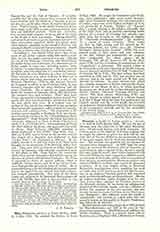

Viva, DOMENICO, writer, b. at Lecce, October 19, 1648; d. July 5, 1726. He entered the Society of Jesus May 12, 1663. He taught the humanities and Greek, nine years’ philosophy, eight years’ moral theology, eight years’ Scholastic theology, was two years prefect of studies, was rector of the College of Naples in 1711, and provincial of Naples. Works: (I) “Enchiridion”, a work relating to the jubilee, especially that of the Holy Year, and in general concerning indulgences; (2) a course of theology for schools, complied from his lectures at the college at Naples; “Opuscula theologico-moralia”, for students; a course of moral theology. These works are held in high esteem and are quoted by St. Alphonsus Liguori, La Croix, etc.; (5) “Trutina theologica damnatarum thesium” (1708), his most famous work, in four parts and two volumes. In the first volume are enumerated the propositions condemned by three popes: 45 by Alexander VII, 65 by Innocent XI, 39 by Alexander VIII, and the 5 condemned propositions of the “Augustinus” of Jansenius. The second volume is devoted to the study and refutation of the 101 propositions of Quesnel, condemned by the Bull “Unigenitus” of Clement XI in 1713. The first volume had been published in 1708 and by 1757 had reached sixteen editions, and in the same period vol. II had gone through six editions. To some editions were added the valuable comments of Father Antonio Zaccharia, librarian of the House of Este, in which pontifical documents are cited and the author defended against Daniel Concina, Giovanni Vincenzo Patuzzi, and others. The third edition (Benevento, 1717) contains a treatise in which appeal to a future council is declared illegal when the pope has spoken and the Church, spread over the entire world, has accepted his judgment; which is demonstrated by the testimony of the ecumenical councils and by the assemblies of the French clergy.
RAMON RUIZ AMADO

